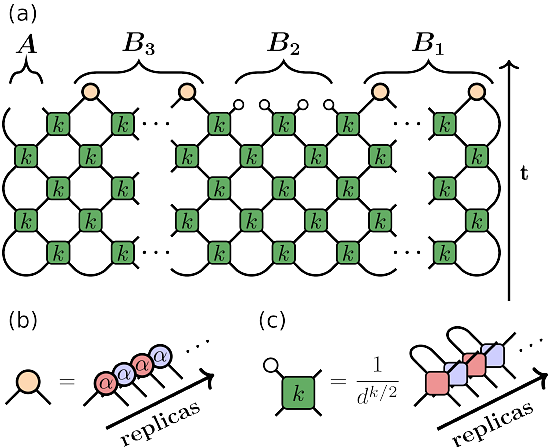Mixed state deep thermalization

Mixed state deep thermalization
Xie-Hang Yu, Wen Wei Ho, Pavel Kos
AbstractWe introduce the notion of the mixed state projected ensemble (MSPE), a collection of mixed states describing a local region of a quantum many-body system, conditioned upon measurements of the complementary region which are incomplete. This constitutes a generalization of the pure state projected ensemble in which measurements are assumed ideal and complete, and which has been shown to tend towards limiting pure state distributions depending only on symmetries of the system, thus representing a new kind of universality in quantum equilibration dubbed deep thermalization. We study the MSPE generated by solvable (1+1)d dual-unitary quantum circuit evolution, and identify the limiting mixed state distributions which emerge at late times depending on the size of the incomplete measurement, which we assume to be lossy, finding that they correspond to certain random density matrix ensembles known in the literature. We also derive the rate of the emergence of such universality. Furthermore, we investigate the quantum information properties of the states composing the ensemble, specifically their capacity to teleport quantum information between the ends of the system. The teleportation fidelity is upper bounded by the quantum conditional entropy, which we find exhibits a sharp transition from zero to maximal when the number of measurements lost matches of that the number of degrees of freedom to be teleported. Our results initiate the first investigation of deep thermalization for mixed state ensembles, which are relevant for present-day quantum simulation experiments wherein measurements are typically not perfect, and also amount to a physical and natural way of sampling from hitherto abstract random density matrix ensembles.